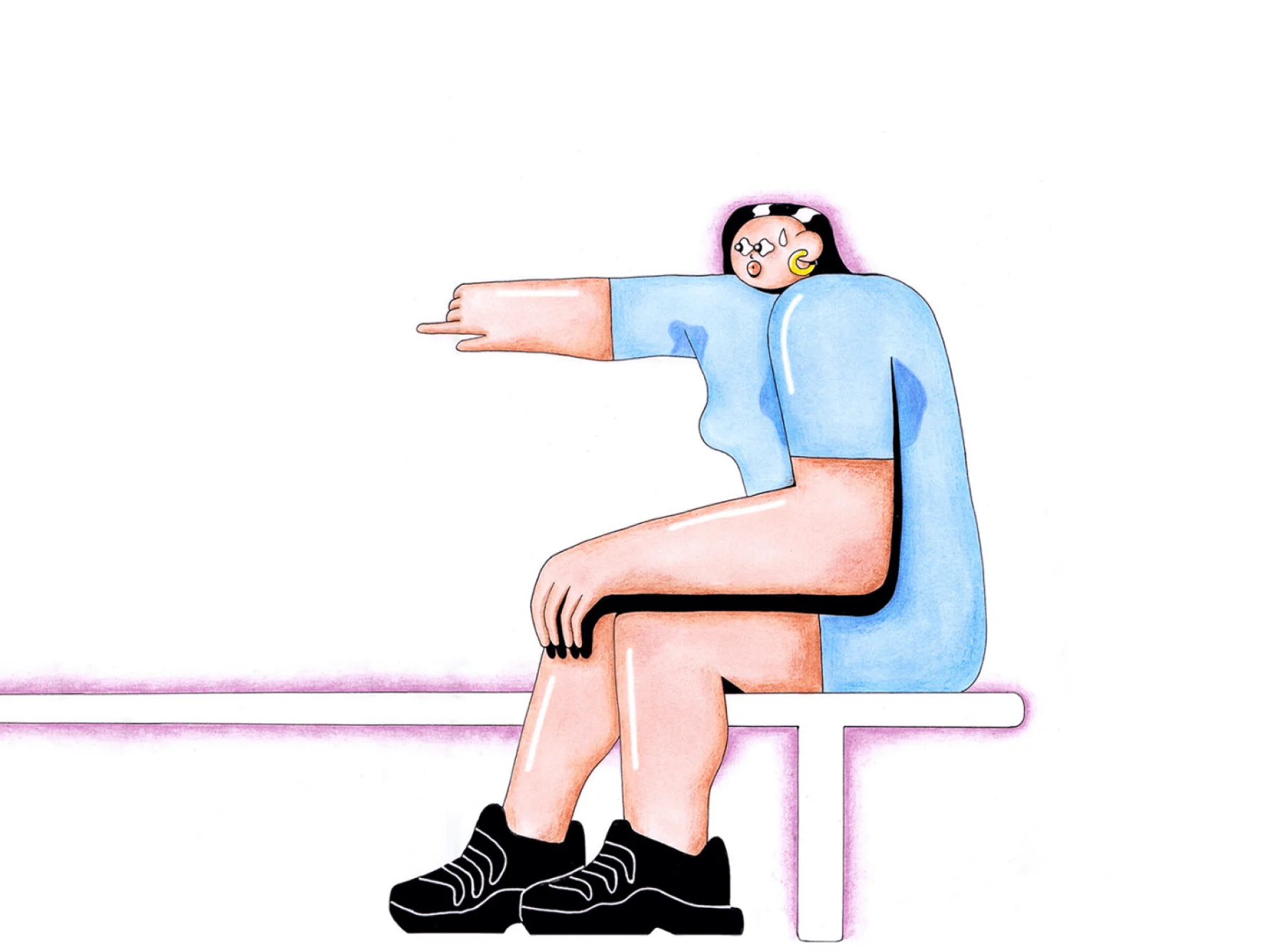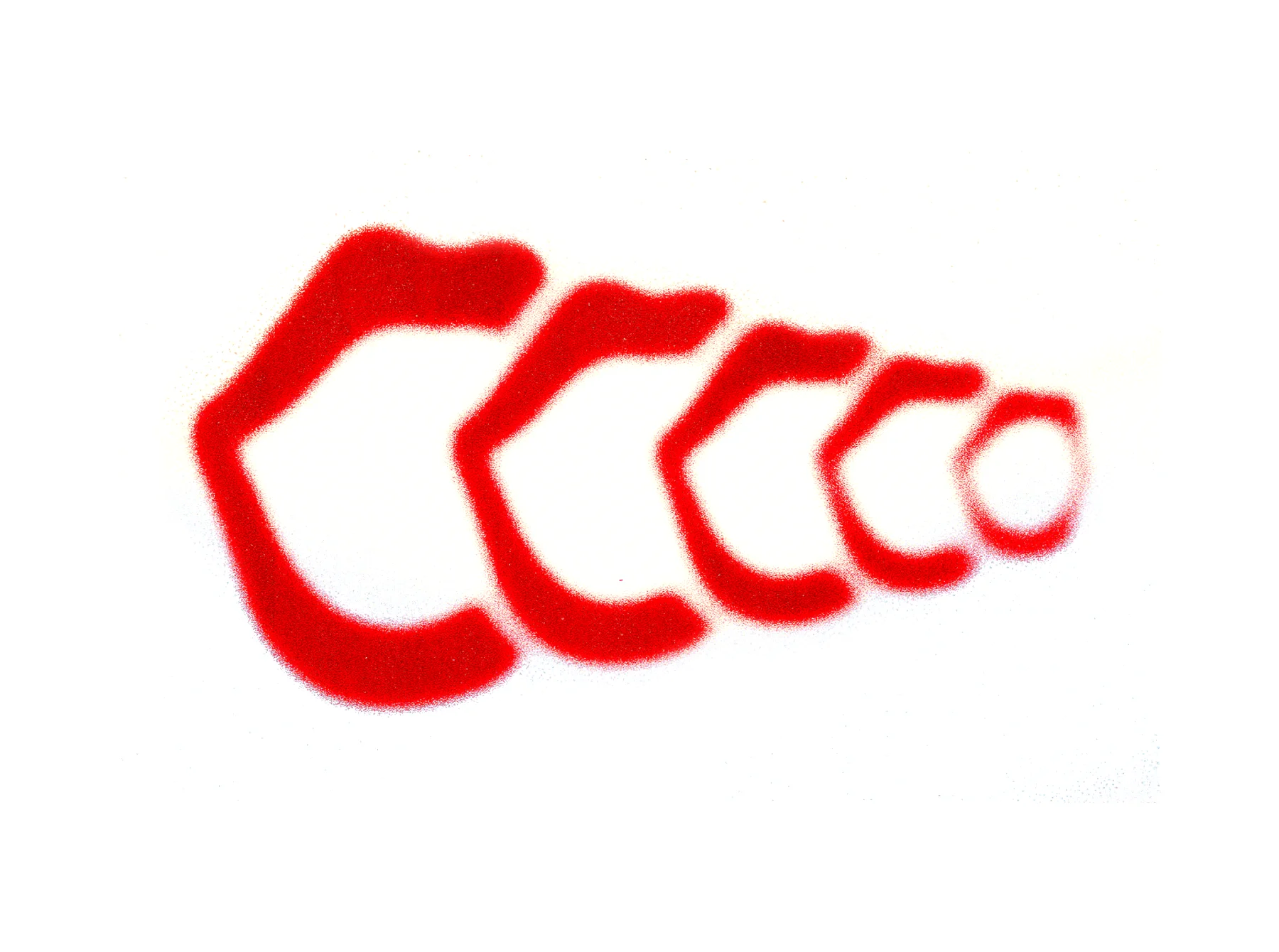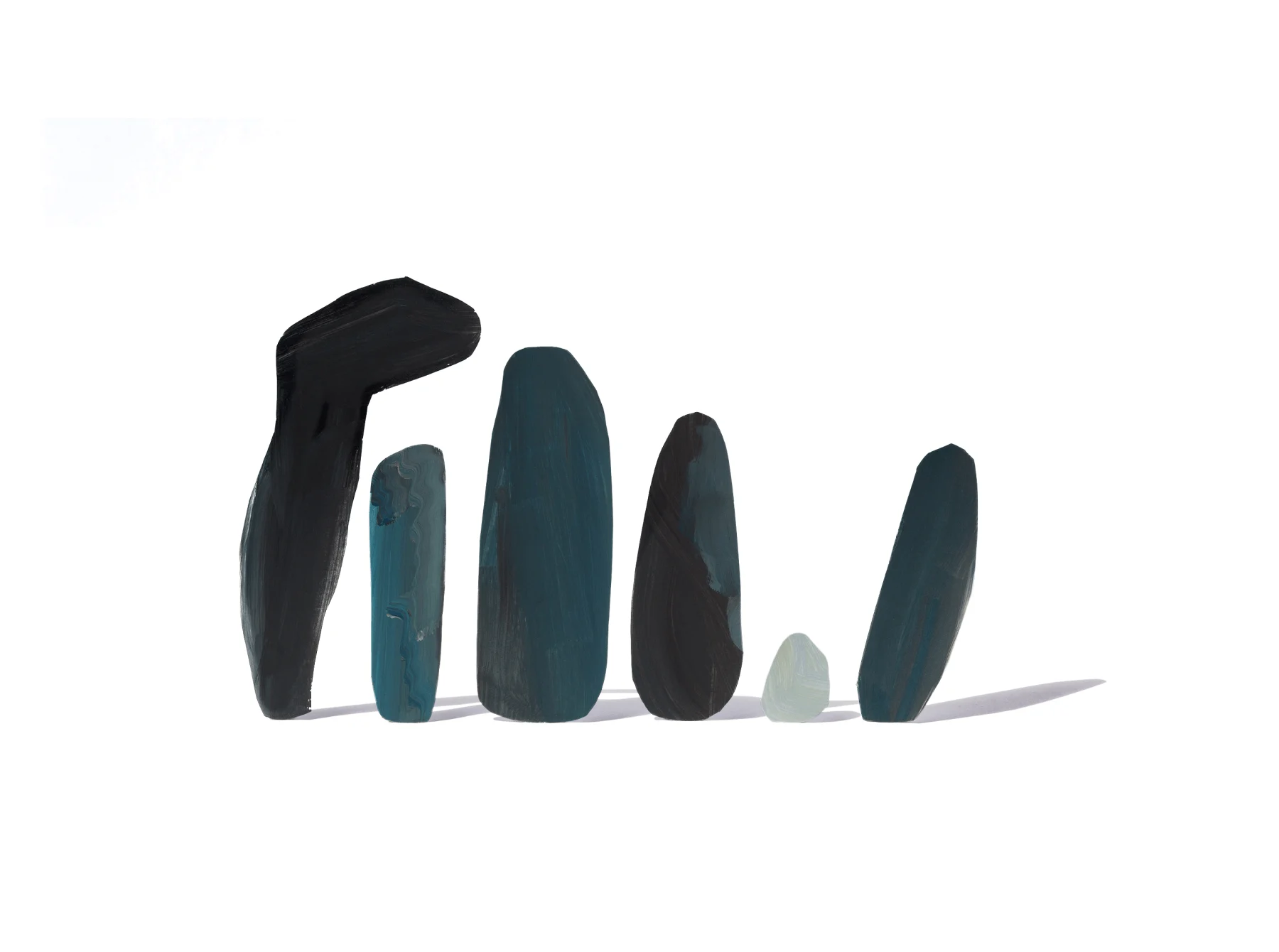
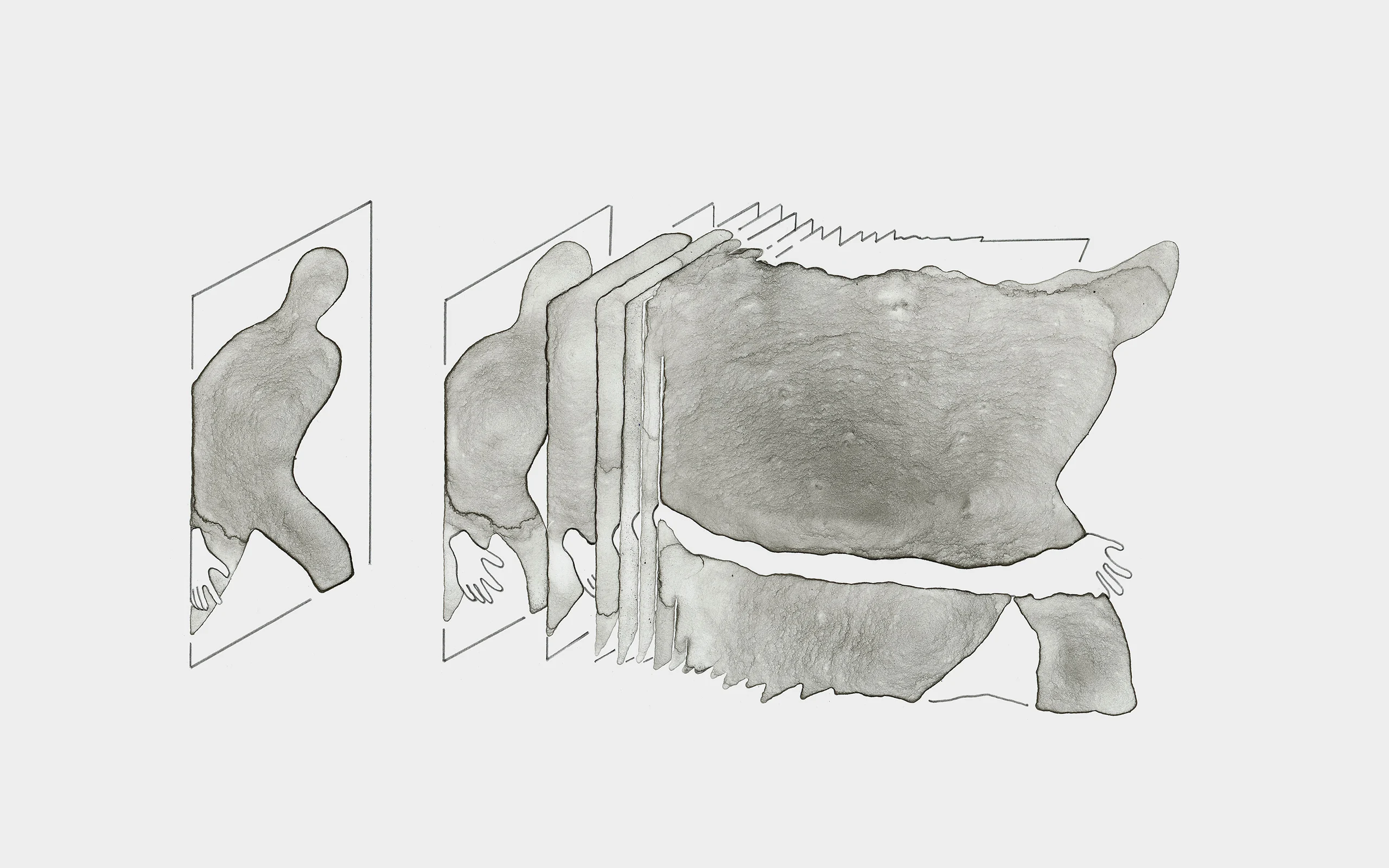
When you first start out in the creative industries, there is a lot of received wisdom. "This is how it works." "That’s just the way it is." But how true are these truisms? We partnered up with Lecture in Progress to look at six myths you often hear when it comes to creative careers and find out how true, if at all, they really are.
Illustrations by Yoon Miwon.
Myth 1: Success and burnout go hand in hand
Ah, the creative brain. A wondrous, magical, mysterious thing. Always on the lookout for untapped observations or sparks of divine inspiration. Marinated in coffee, it doesn’t conform to the nine-to-five because being busy is what it’s best at. Sleep? Sleep is for the weak!
That is, until it all comes crashing to a halt. Welcome to burnout. “I was always tired. I had headaches. I felt foggy-headed. I was anxious, I had heart palpitations. I felt like I had to be ‘on’ all the time,” says San Francisco-based creative director and designer Jessica Strelioff.
Let’s be clear: there is nothing – nothing – romantic about burnout. A self-confessed over-achiever, Jessica never had any hesitations when it came to prioritizing work. Even when she was hospitalized for Crohn’s disease, she remembers being frustrated that she couldn’t physically get to the office.
But she also remembers the great work environment at the studio, her supportive colleagues. In reality there were no expectations for her to work such long hours. So why was she pushing herself so hard? Why do we all push ourselves so hard? Because for as long as we can remember, being told not just to work, but to work hard, has been offered up as the best route to any kind of success.
Burnout and be nice to people
We’ve heard it from our parents, our teachers, we’ve read it online and on posters. We’ve watched films that tell rags-to-riches stories, and we listen to music that does the same. Work hard and be nice to people: it’s a fail-safe bit of guidance that few can find fault with.
And for Jessica, overworking worked. It really worked. She first joined the company as a designer, and was made creative director within a year. “ all the senior members of the team were male. I was pissed about that. I thought, ‘I’m as talented as these people, and I will prove that .’” Jessica set herself a goal, and she didn’t stop until she got there.
The warning signs
But there is a crucial point at which hard work ends, and burnout begins. This isn’t just a case of feeling a bit tired; burnout is real, it’s continuing to affect people, and in an increasingly competitive creative industry, it’s important to understand why.
While some see burnout as an inevitable characteristic of the millennial generation, others are quick to point out we’ve been exhausted for centuries. We constantly hear about successful people who start their day at 4am, like Vogue editor-in-chief Anna Wintour and Apple CEO Tim Cook. Tesla founder Elon Musk recently told The New York Times that he works 120 hours a week, and relies on prescription drug Ambien to counteract what little sleep he gets. Are these people all successful? Yes. Are they setting unhealthy and unrealistic standards? Also yes. Should you attempt to do the same? No!

Working around the world
Where you work also plays a part in this. We know that global working hours vary. France maintains a government-set 35-hour working week, and in recent years Gambia and Romania have trialled a four-day week. Asian countries, on the other hand, are known to stretch to an astounding 60 to 70 hours a week . Take Japan, where ‘salaryman’ culture means workers are expected to value work above all else. They even have a term – Karōshi – which translates as “overwork death.”
And these numbers don’t take into account the hours we might spend on social media marketing ourselves or checking emails – especially when apps like Slack and Instagram often live within a thumb’s reach of each other on our phone screens.
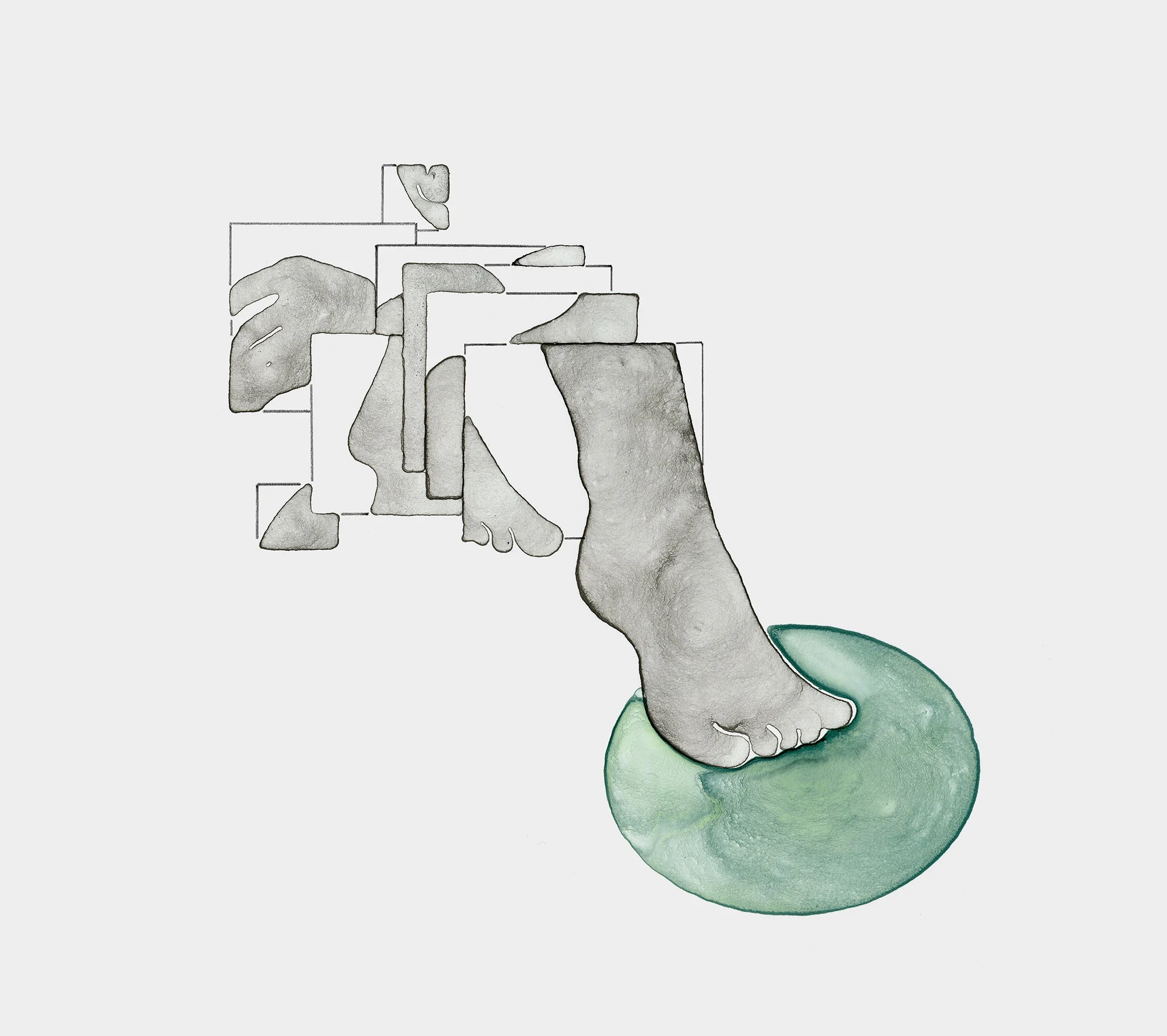
Learning to say no
Then there’s the work itself. Research by professor of organizational behavior, Daniel Cable, suggests those who take on boring or demotivating work can end up with inflamed immune systems, making themselves ill. For Barcelona-based designer and illustrator Marina Esmeraldo, burnout came from “repeatedly doing something that didn’t give me much joy creatively, or that I didn’t believe in.”
Working on a particularly troublesome project in which the client changed the brief “beyond recognition” gave her headaches, caused pressure to build behind her eyes and ultimately brought her to a standstill. “I didn’t feel enthusiastic about doing anything. But being a professional means showing up, even if you don’t feel like it.” In the end, Marina says, “I was just going through the motions to get the job finished.”
This pressure can be particularly acute for freelancers and small studios whose unpredictable workflow leaves them reluctant to turn work down. “After burning myself out, I learned to avoid saying yes immediately,” says Sheffield-based Matt Pyke, founder of digital art and design studio Universal Everything. “Instead, I ask for time to make informed choices about accepting the right projects for the studio. Now we only accept work we are proud to show on the front of our website.”
Don’t wait for your wake-up call
Beyond the varying motivations, causes and influences, it’s easy to overlook the real driving force behind any of this – the idea of success.
When Jessica started her career, success was reaching that creative director role. By the time she reached it, she wasn’t happy, her perception had shifted and a lifestyle change was the urgent next step. Burnout became an extreme wake-up call. But locking ourselves away in a creative pressure-cooker to reach some kind of career-related high should not be the standard.
Should you aim for success? Of course.. But as soon as you find your self-esteem, health and happiness being compromised, it’s time to reprioritize. Because what is success when you’re not even well enough to celebrate it?

